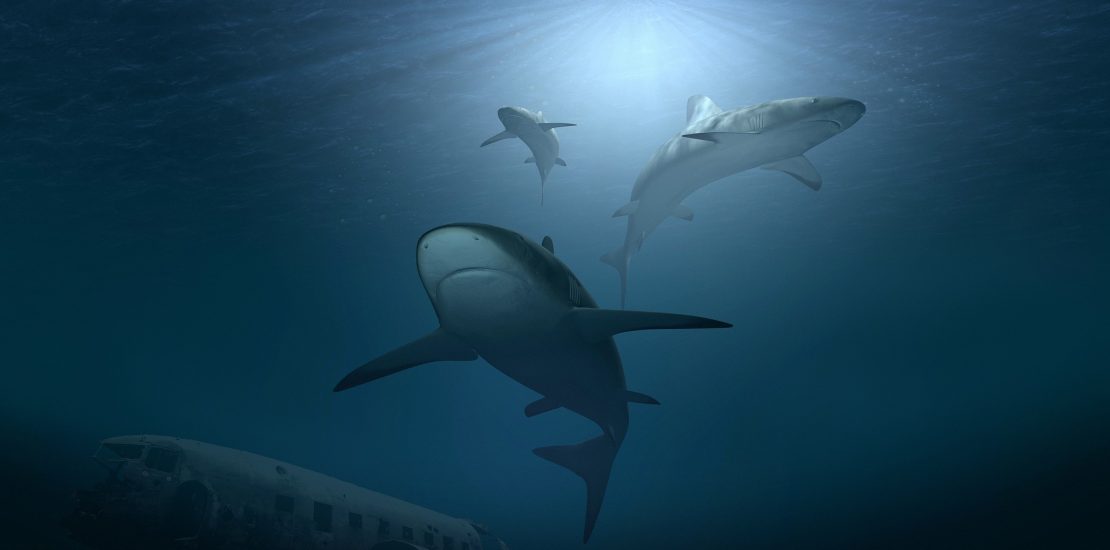“Let’s save sharks with marine protected areas”, the Shark Guardian appealAbbracciare la complessità per un domani più sostenibile.
- 1 May 2021
- Posted by: Competere
- Categories: highlights, News, Sustainable Nutrition

Following a great number of online petitions and the mobilization of several local and international groups at the forefront of environmental and marine species protection, a large citizen movement known as #SaveOurSharks is born. It includes many tourism-related operators, such as many diving centers, project aware organizations and a large part of civil society.
THE SHARK GUARDIAN INTERVENTION
The Shark Guardian organization is also involved. The Shark Guardian group is a UK-based charity that moves internationally to protect and conserve sharks in all the seas and oceans of the world.
The Shark Guardian group has been concerned to investigate directly with Maldivian Fisheries Minister, Zaha Waheed, who said there is no government intention to restore shark fishing. Rather, the quid of the proposal of the Maldivian government concerned sharks that accidentally become victims of catches as a result of fishing for pelagic fish.
However, it must be said that today the traditionally used technique in the Maldives is the hand line or pole line, in which fishermen find themselves in the open sea in a 1:1 ratio fight for survival. This technique is therefore considered sustainable (although it is necessary to evaluate how the fish that will act as bait for the tuna is caught). Fishermen, from their personal experience, know that sharks are essential for maintaining the underwater balance. They are also aware that there is a chance to encounter these creatures who, at times, may bite the fish they catch; but that’s also part of the game.
REQUESTS FOR PROTECTED MARINE AREAS
Maldivian minister Waheed said there is pressure from small groups of fishermen, especially belonging to the new generations (who have easier access to smartphones and social networks), aimed at making the current problem of lost catches eaten by sharks more visible. Obviously we can’t blame those sharks who follow their predatory nature within their habitat. Just as it is more than understandable that fishermen too can and must provide for their survival, creating a sort of competition between the two parties who fight for the same right to get food.
In order to solve this problem, protected marine areas could be created, especially if they are close to coral reefs and at the “entrances” of the oceanic passes, where it is not possible to fish, so that they can remain intact and flourishing to the benefit of all; encouraging even younger fishermen to maintain their deep sea fishing traditions.
The problem that arose with Minister Waheed therefore does not concern shark hunting, but rather the emphasis has been placed on sharks victims of accidental capture. Indeed, today’s law provides that no species of shark can be embarked for commercial or other purposes, while the question is whether, instead, accidentally dead sharks can be used for ulterior purposes, including commercial ones. It cannot be denied that this would create precedents and make checks very difficult as it is not possible to check all the ships found in Maldivian waters and, above all, it has not been possible to prove that the sharks brought ashore were actually found already dead.
THE PROBLEMS OF LONG LINE FISHING
We must emphasize, once again, that the traditional Maldivian fishing of Hand Line and/or Pole Line is not directly involved, since as already mentioned this is a sustainable way of fishing (however, a maximum limit of vessels authorized for this type must be maintained). The problem arises where the possibility of fishing with the Long Line could be opened, which, as sadly ascertained, is the cause of bycatch of many sharks and pelagic fish including turtles, manta rays etc. For this reason it should be strongly discouraged and it should be avoided that such incidents occur, as happened a few weeks ago at the Fish Head dive site, a marine protected area in the North Ari Atoll, and which should be prosecuted and punished by law.
THE IMPORTANCE OF THIS BATTLE
The Maldives are a unique country in the world, not so much for the white beaches, palm trees and turquoise lagoons, as for the immense treasure they keep under the surface of the water and which makes this place a true underwater paradise which, however, has to deal with numerous anthropological attacks. First of all, global warming poses a real threat, with consequent acidification of the waters which is threatening the coral reefs of the whole planet. Then, the now devastating presence of single-use plastic, as well as the erosion of beaches due to the lack of natural protections such as mangroves which, on many islands, are removed to make room for construction. Also noteworthy is a problem that is afflicting the reef fish population, in great numerical decline in recent decades. The problem was also brought to light thanks to the activities of the Blue Marine Foundation and Maldivian Resilient Reef group, whose Project Manager Shaha Hashim raised the problem in front of the Minister of Fisheries so that laws are made to protect coral reefs and its inhabitants.
This increase in fishing and consumption of reef fish, in particular groupers, snappers and emperor fishes, is due to the development of tourism which has brought new habits to the country that do not correspond to the defense and resilience of the coral reef. The article reports a continuous growth in reef fish consumers, even among the local population who for years have based their diet mainly on tuna and who today do not give up on this type of food choices, also encouraged by the business that Bottom fishing has created behind it, a recreational activity now widespread in most tourist facilities. This, Shaha says, has led to the loss of much of the fish found here since the 1990s (an estimated loss of about 80 percent of groupers). In fact, unlike tuna, reef fish mature and reproduce in adulthood (about 9 years or 50-55 cm in length) and in this way the demand is greater and faster than the speed and reproductive capacity of the species. It is essential, the Blue group reiterates, to obtain a law that protects tourist activities dedicated to fishing so as to be able to maintain adequate control over coral reefs, fish and the creatures that inhabit them.
There is still so much to do, so many battles to fight and to do so it is necessary to start from environmental education and knowledge of biodiversity from an early age, in order to grow a population of aware citizens equipped with tools for the maintenance and protection of the country for generations to come.
Author’s biography
Capanna Piscè Jessica, born in 1988, from Pineto (TE) in Abruzzo. She obtained professional diving certification in 2010 and 2011 as an instructor. She worked in the Red Sea where she trained as a scuba diver. She has lived in the Maldives since 2014 and has done most of her diving here (around 8000).

